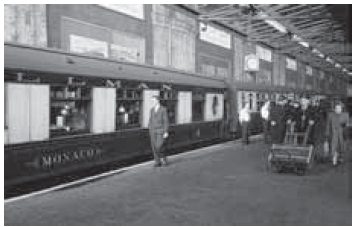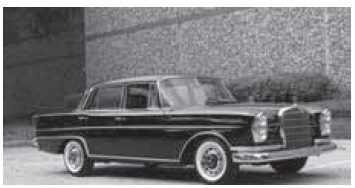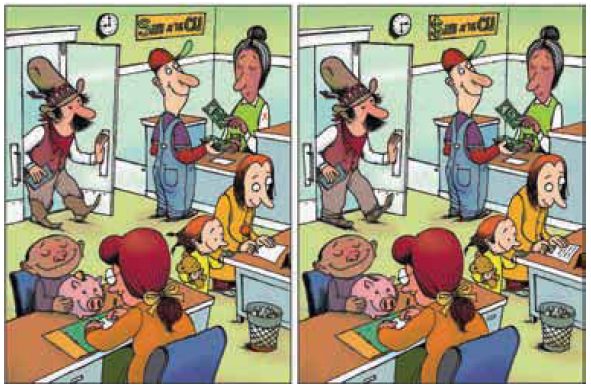Supplementary/Story by Hector Hugh Munro - Supplementary: A Shot in the Dark | 11th English : UNIT 2 : Supplementary: A Shot in the Dark
Chapter: 11th English : UNIT 2 : Supplementary: A Shot in the Dark
Supplementary: A Shot in the Dark
Supplementary
A Shot in the Dark
Here is an amusing
story that describes how a man who considers himself very smart and observant
finds that he had mistaken the genuine plea of a stranded youth.
Characters in the story
Philip Sletherby -a man who aspires to become a
politician
Mrs. Saltpen-Jago -a rich and influential lady of high
rank
Bertie - son of Mrs. Saltpen Jago
Claude People K.C.
- a friend of Sletherby
Philip Sletherby
settled himself down in an almost empty railway carriage, with the pleasant
consciousness of being embarked on an agreeable and profitable
pilgrimage. He was bound for Brill Manor, the country residence of his newly
achieved acquaintance, Mrs. Saltpen-Jago. *Honoria Saltpen-Jago was a person of
some social importance in London, of considerable importance and influence in
the county of Chalkshire. The county of Chalkshire, or, at any rate, the
eastern division of it, was of immediate personal interest to Philip Sletherby;
it was held for the Government in the present Parliament by a gentleman who did
not intend to seek re-election, and Sletherby was under serious consideration
by the party managers as his possible successor, and with luck, the seat might
be held. The Saltpen-Jago influence was not an item which could be left out of
consideration, and the political aspirant had been delighted at meeting Honoria
at a small and friendly luncheon-party, still more gratified when she had asked
him down to her country house for the following Friday-to-Tuesday. He was
obviously ‘on approval’, and if he could secure the goodwill of his hostess he
might count on her nominating him as an assured thing. If he failed to find
favour in her eyes — well, the local leaders would probably cool off in their
embryo enthusiasm for him.
Among the
passengers dotted about on the platform, awaiting their respective trains,
Sletherby espied a club acquaintance, and called him
up to the carriage-window for a chat.
“Oh, you’re staying
with Mrs. Saltpen-Jago for the week-end, are you? I expect you’ll have a good
time; she has the reputation of being an excellent hostess. She’ll be useful to
you, too, if that Parliamentary project — hullo, you’re off. Good-bye.”

Sletherby waved
good-bye to his friend, pulled up the window, and turned his attention to the
magazine lying on his lap. He had scarcely glanced at a couple of pages,
however, when a smothered curse caused him to glance hastily at the only other
occupant of the carriage. His travelling companion was a young man of about
two-and-twenty, with dark hair, fresh complexion, and the blend of smartness
and disarray that marks the costume of a ‘nut’ who is bound on a rustic
holiday. He was engaged in searching furiously and ineffectually for some elusive or non-existent object; from time to time he
dug a sixpenny bit out of a waistcoat pocket and stared at it ruefully, then recommenced the futile
searching operations. A cigarette-case, matchbox, latchkey, silver pencil case,
and railway ticket were turned out on to the seat beside him, but none of these
articles seemed to afford him satisfaction; he cursed again, rather louder than
before. The vigorous pantomime
did not draw forth
any remark from Sletherby, who resumed his
scrutiny of the magazine.
“I say!” exclaimed
a young voice presently, “didn’t I hear you say you were going down to stay
with Mrs. Saltpen-Jago at Brill Manor? What a coincidence! My *mater, you know.
I’m coming on there on Monday evening, so we shall meet. I’m quite a stranger;
haven’t seen the mater for six months at least. I was away yachting last time
she was in Town. I’m Bertie, the second son, you know. I say, it’s an awfully
lucky coincidence that I should run across someone who knows the mater just at
this particular moment. I’ve done a damned awkward thing.”
“You’ve lost
something, haven’t you?” said Sletherby.
“Not exactly, but
left behind, which is almost as bad; just as inconvenient, anyway. I’ve come
away without my sovereign-purse, with four quid in it, all my worldly wealth for the moment. It was in my
pocket all right, just before I was starting, and then I wanted to seal a
letter, and the sovereign-purse happens to have my crest on it, so I whipped it
out to stamp the seal with, and, like a double-distilled idiot, I must have
left it on the table. I had some silver loose in my pocket, but after I’d paid
for a taxi and my ticket I’d only got this forlorn little six pence left. I’m
stopping at a little country inn near Brondquay for three days’ fishing; not a
soul knows me there, and my week-end bill, and tips, and cab to and from the
station, and my ticket on to Brill, that will mount up to two or three quid,
won’t it? If you wouldn’t mind lending me two pound ten, or three for
preference, I shall be awfully obliged. It will pull me out of no end of a
hole.”
“I think I can
manage that,” said Sletherby, after a moment’s hesitation.
“Thanks awfully.
It’s jolly good of you. What a lucky thing for me that I should have chanced
across one of the mater’s friends. It will be a lesson to me not to leave my exchequer lying about anywhere, when it ought
to be in my pocket. I suppose the moral of the whole thing is don’t try and
convert things to purposes for which they weren’t intended. Still, when a
sovereign-purse has your crest
on it–”
“What is your
crest, by the way?” Sletherby asked, carelessly.
“Not a very common
one,” said the youth; “a demi-lion holding a cross-crosslet in its paw.”
“When your mother
wrote to me, giving me a list of trains, she had, if I remember rightly, a
greyhound *courant on her notepaper,” observed Sletherby. There was a tinge of
coldness in his voice.

“That is the Jago
crest,” responded the youth promptly; “the demi-lion is the Saltpen crest. We
have the right to use both, but I always use the demi-lion, because, after all,
we are really Saltpens.”
There was silence
for a moment or two, and the young man began to collect his fishing tackle and other belongings from the rack.
“My station is the
next one,” he announced.
“I’ve never met
your mother,” said Sletherby suddenly, “though we’ve corresponded several
times. My introduction to her was through political friends. Does she resemble
you at all in feature? I should rather like to be able to pick her out if she
happened to be on the platform to meet me.”
“She’s supposed to
be like me. She has the same dark brown hair and high colour; it runs in her
family. I say, this is where I get out.”
“Good-bye,” said
Sletherby.
“You’ve forgotten
the three quid,” said the young man, opening the carriage-door and pitching his
suit-case on to the platform.
“I’ve no intention
of lending you three pounds, or three shillings,” said Sletherby severely.
“But you said–”
“I know I did. My
suspicions hadn’t been roused then, though I hadn’t necessarily swallowed your
story. The discrepancy about the crests put me on my guard, notwithstanding the really brilliant way in which
you accounted for it. Then I laid a trap for you; I told you that I had never
met Mrs. Saltpen-Jago. As a matter of fact I met her at lunch on Monday last.
She is a pronounced blonde.”
The train moved on,
leaving the soi-disant cadet of the Saltpen-Jago family cursing furiously on the platform.
“Well, he hasn’t
opened his fishing expedition by catching a flat,” chuckled Sletherby. He would
have an entertaining story to recount at dinner that evening, and his clever
little trap would earn him applause as a man of resource and astuteness. He was still telling his adventure
in imagination to an attentive audience of dinner guests when the train drew up
at his destination. On the platform he was greeted sedately by a tall footman, and noisily by Claude People, K.C., who had
apparently travelled down by the same train.
“Hullo, Sletherby! You spending the week-end
at Brill? Good. Excellent. We’ll have a round of golf together to-morrow; I’ll
give you your revenge for Hoylake. Not a bad course here, as inland courses go.
Ah, here we are; here’s the car waiting for us, and very nice, too!”
The car which won
the K.C.’s approval was a sumptuous-looking vehicle, which seemed to
embody the last word in elegance, comfort, and locomotive power. Its graceful
lines and symmetrical design masked the fact that it was an enormous wheeled
structure, combining the features of a hotel lounge and an engine-room.
“Different sort of
vehicle to the post-chaise in which our grandfathers used to
travel, eh?” exclaimed the lawyer appreciatively. And for Sletherby’s benefit
he began running over the chief points of perfection in the fitting and
mechanism of the car.
Sletherby heard not
a single word, noted not one of the details that were being expounded to him. His eyes were fixed on the
door panel, on which were displayed two crests: a greyhound courant and a
demi-lion holding in its paw a cross-crosslet.

The K.C. was not
the sort of man to notice an absorbed silence on the part of a companion. He
had been silent himself for nearly an hour in the train, and his tongue was
making up for lost time. Political gossip, personal anecdote, and general
observation flowed from him in an uninterrupted stream as the car sped along
the country roads; from the inner history of the Dublin labour troubles and the
private life of the Prince Designate of Albania he progressed with an easy volubility to an account of an alleged
happening at the ninth hole at Sandwich, and a verbatim report of a remark made
by the Duchess of Pathshire at a Tango tea. Just as the car turned in at the
Brill entrance gates the K.C. captured Sletherby’s attention by switching his
remarks to the personality of their hostess.
“Brilliant woman,
level-headed, a clear thinker, knows exactly when to take up an individual or a
cause, exactly when to let him or it drop. Influential woman, but spoils
herself and her chances by being too restless. No repose. Good appearance, too,
till she made that idiotic change.”
“Change?” queried
Sletherby, “what change?”
“What change? You
don’t mean to say– Oh, of course, you’ve only known her just lately. She used
to have beautiful dark brown hair, which went very well with her fresh
complexion; then one day, about five weeks ago, she electrified everybody by
appearing as a brilliant blonde. Quite ruined her looks. Here we
are. I say, what’s the matter with you? You look rather ill.”
(slightly adapted)
About the Author
Hector Hugh Munro (18 December 1870 – 14 November 1916), better known by the pen name Saki, and also frequently as H. H. Munro, was a British writer whose witty, mischievous and sometimes macabre stories satirize Edwardian society and culture. He is considered a master of the short story, and often compared to O. Henry. Besides his short stories he wrote a full-length play, The Watched Pot, in collaboration with Charles Maude.
Warm up
Can you spot 10 differences between these pictures?

How observant are you? Individually, try to spot as many differences as possible in five minutes. If you have spotted less than five, then you really need to improve your observation skill just to save yourself from being misled.
Related Topics